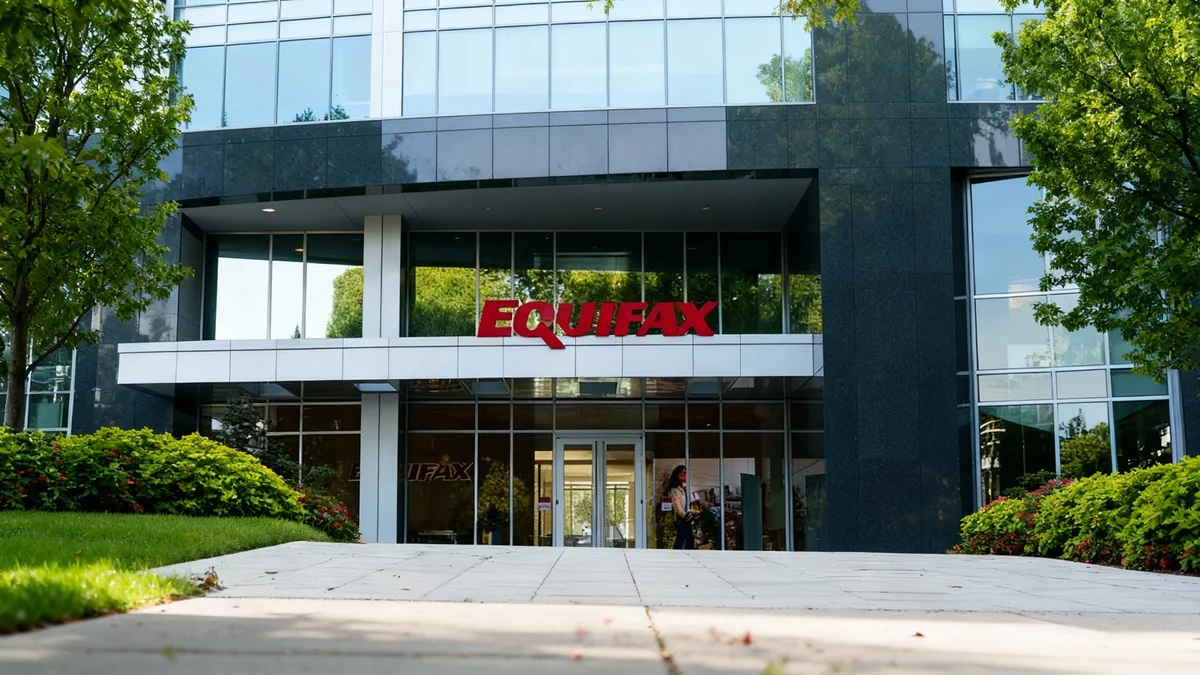Credit reporting agency Equifax is positioning itself to capitalize on new federal rules that will require states to verify employment for millions of Medicaid recipients. The company's chief executive has identified the legislative shift as a significant business opportunity, as state agencies will increasingly rely on third-party data providers to enforce the new mandates.
Beginning in 2027, a domestic policy bill will mandate that tens of millions of low-income adults prove they are working, volunteering, or attending classes for at least 80 hours per month to maintain their eligibility for Medicaid and certain food assistance programs. This change creates a substantial new market for employment verification services, a sector where Equifax is a dominant player.
Key Takeaways
- New federal legislation effective in 2027 will require work verification for millions of Medicaid recipients.
- Equifax, a major provider of employment data, is set to be a primary vendor for state governments enforcing these rules.
- The company's CEO has publicly described the new requirements as a "massive" business opportunity.
- Several states have already experienced significant price increases for Equifax's verification services in recent years.
The Legislative Shift and Its Business Implications
The new federal requirements are part of a broader legislative effort designed to reduce government spending on public benefits. Proponents aim to save the federal government an estimated $400 billion by tightening eligibility for programs like Medicaid. The core of this plan involves mandating work-related activities for able-bodied adults.
To comply, state agencies must have a reliable system to check and monitor the employment status of millions of individuals on a continuous basis. This administrative task is complex and resource-intensive, leading states to seek external solutions.
Equifax, with its extensive database of employment records, is uniquely positioned to meet this demand. The company has long-standing relationships with government agencies and a well-established infrastructure for providing income and employment data.
"This is a big positive for us," an Equifax executive noted during a recent investor call, highlighting the anticipated surge in demand from state governments needing to implement the new verification systems.
Equifax's Data Dominance
Equifax's business model for employment verification relies on a vast and continuously updated database. The company acquires payroll data directly from a wide array of sources, creating a comprehensive repository of employment information.
How the Data is Collected
Equifax has established exclusive agreements with large corporations, major payroll processing companies, and various public-sector employers. Through these partnerships, it has amassed employment and income records for nearly 100 million American workers. This data is then packaged and sold as a verification service.
This centralized database makes Equifax an essential partner for organizations that need to verify financial information. Its clients include:
- Private Lenders: Banks and mortgage companies use the data to assess loan applications.
- Landlords: Property managers verify tenant income and employment history.
- Government Agencies: Federal and state bodies use the service to determine eligibility for public benefits.
With the new Medicaid rules, the demand from state governments is expected to become a more significant and lucrative part of Equifax's business.
Rising Costs for State Governments
Even before the new federal mandate, states have seen a sharp increase in the prices Equifax charges for its data verification services. Public records from several state contracts show a clear trend of rising costs per query.
In Colorado, for instance, the price the state's Department of Human Services pays for each data match has tripled over the past four years. Similar price hikes have been observed in contracts with agencies in North Carolina, Kansas, and Connecticut.
Price Increases by State
Analysis of state contracts reveals that Equifax has significantly raised its per-query rates. The earlier prices shown are the rates that Equifax charged four years before the expiration of its current contract with each state agency, demonstrating a consistent upward trend in costs for taxpayers.
This pricing power stems from Equifax's dominant market position and the critical nature of its data. As states prepare for the 2027 deadline, they will need to budget for these essential, and increasingly expensive, verification services. The dependency on a few key data brokers like Equifax gives these companies considerable leverage in contract negotiations.
Looking Ahead to 2027
The implementation of the work requirement is still several years away, but both Equifax and state governments are already preparing for the change. For Equifax, this involves scaling its systems to handle a massive influx of verification requests and solidifying its contracts with state agencies across the country.
For state officials, the challenge will be to implement a system that is both efficient and accurate, ensuring that eligible individuals are not improperly removed from benefit programs due to administrative errors. The reliance on third-party data will be a crucial component of this process.
The policy shift represents a convergence of public policy and private enterprise, where a legislative mandate to reduce government spending simultaneously creates a new revenue stream for corporations in the data industry. As 2027 approaches, the role of companies like Equifax in the administration of public benefits is set to expand significantly.





